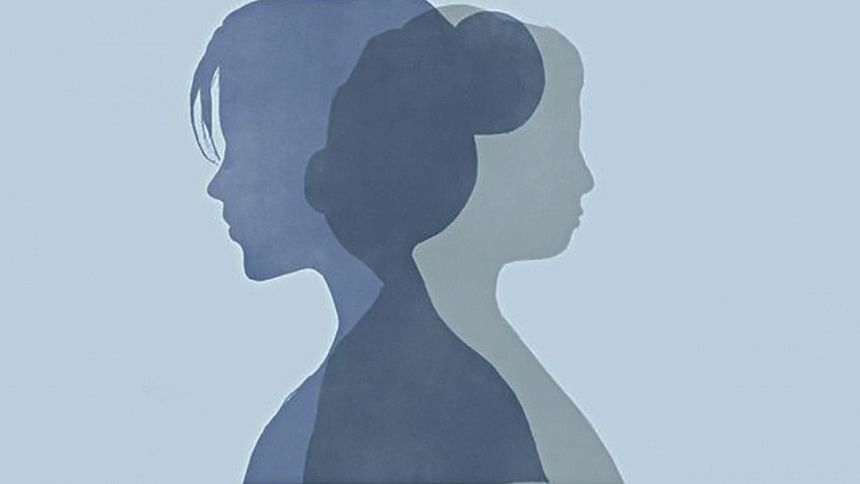Female students recount years of torment

Qazi Farzana Mim's time at Jagannath University (JnU) became an eight-year ordeal after she faced sexual harassment from a teacher.
In her second year, she rejected an inappropriate proposal from him. Upon being rejected, he failed her in his subject and used other intimidation tactics.
Lacking an institutional support, Mim endured constant anxiety, which significantly impacted her mental health and academic progress.
In 2021, when she sought help from the university registrar, he discouraged her and said "those who complain often see their academic life ruined," and then offered her a meal instead.
Disheartened, she left without filing a complaint.
However, after being encouraged by her proctor, she eventually submitted a formal complaint.
"After I staged a public protest with a placard near our campus Shaheed Minar, the university finally formed a probe committee," she said.
"Despite the probe report being due in 90 days, the committee contacted me eight months later just to retell my experience. This should have been resolved long ago. Political power acted as a obstacle."
Mim shared her ordeal at a discussion titled "Testimonies of Harassed Female Students and the Responsibility of Creating a Discrimination-free Educational Environment", organised by the Education Rights Council at the RC Majumdar Arts Auditorium at Dhaka University yesterday.
The event was moderated by Md Shahnewaz Khan Chandan, member-secretary of the council and assistant professor at JnU's Education and Research Institute.
Among those who shared similar stories were Khadizatul Kubra from JnU, Joyma Moonmoon from Eden College, and Synthia Mehrin Sakal from DU.
Fulpori Khatun, a student of Islamic University, joined the event virtually and spoke about the torture she had to endure by some Chhatra League activists in 2023, which nearly forced her to drop out.
"As a first-year student, I witnessed a culture of intimidation and ragging. New students were pressured to greet others [the activists] with 'salam' at every step on the staircase. Those who did not, would face dire consequences."
She remembered being detained and tortured by BCL female activists for four and a half hours, during which they forced her to write a suicide note stating that if she died, no one would be held responsible.
"If university administrations aren't held hostage by political parties, we can create a safe and secure campus for all students."
Khadizatul Kubra opened up about her harrowing experience of spending a year in jail under the oppressive Digital Security Act, despite having committed no crimes.
Even while battling kidney disease, she faced relentless setbacks as a Dhaka court repeatedly denied her bail.
"After enduring such injustice, I was deeply disappointed that no one from my department stood by me. The behaviour I received from some teachers hurt me the most. The harassment I faced during the viva board was incredibly painful for me."
Synthia Mehrin Sokal, a participant in the quota reform movement at DU, said, "On July 15, Chhatra League activists chased me on the campus and struck me in the head with a rod. I heard a loud bang in my ear and then collapsed… I thought I was dying.
"The people of Bangladesh have freed themselves from a dictatorship, but my suffering continues. I still feel the pain every day. I can't be my lively self anymore; even speaking requires pauses. But I am alive, and that is enough."
Joyma Munmun shared how the Chhatra League for 15 years had dominated the university halls, forcing students into political activities and subjecting those who resisted to mental and physical abuse.
Professor M Niaz Asadullah, convener of the Education Rights Council and professorial fellow at North South University, presided over the event.
In his speech, he said, "The education system may be faltering, but the youth remains resilient. That gives us hope. Today, we focused on one aspect of our 14-point agenda. Moving forward, we'll focus on other reforms, ensuring that inclusivity and youth participation are at the heart of all educational endeavours."
Professor Hosne Ara Begum, former director of DU's Institute of Education and Research, said, "There should be no political influence in the relationship between teachers and students."
Professor Dr Chowdhury Saima Ferdous, of DU's international business department, said, "I feel ashamed as a teacher after hearing the struggles of the girls at this event. While we knew about the abuses in the dormitories, we were unaware of the details."
Dr Moninur Rashid, of DU's Institute of Education and Research, said, "To create discrimination-free educational environments, we must ensure good governance. Teachers must fulfil their roles as educators, and we need to dismantle the culture of student politics that fosters dependency."

 For all latest news, follow The Daily Star's Google News channel.
For all latest news, follow The Daily Star's Google News channel. 








Comments